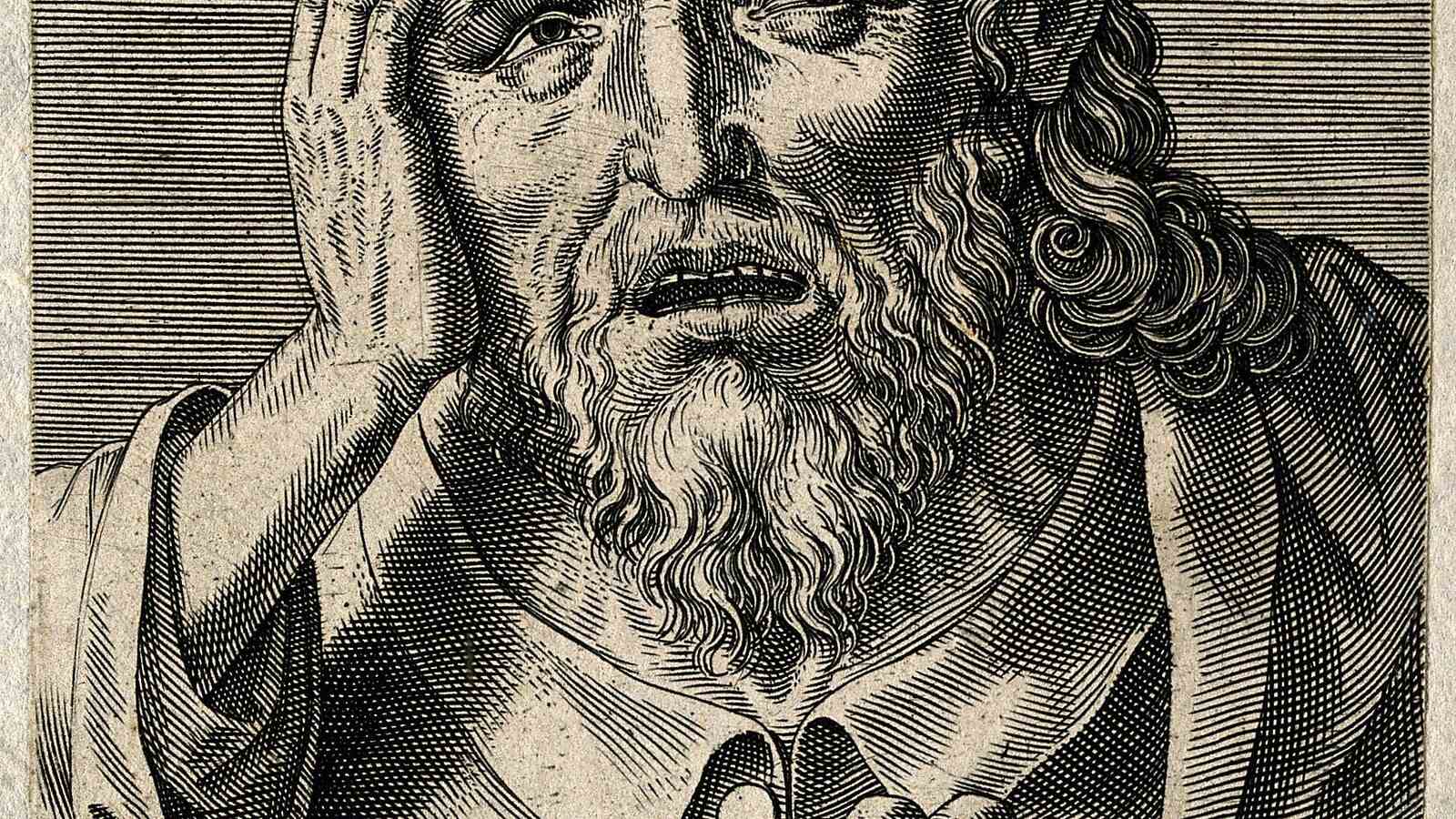
Heraclitus, also known as the “Weeping Philosopher,” was an ancient Greek philosopher who lived during the 6th century BC. He was renowned for his profound and enigmatic teachings, which focused on the ever-changing nature of the universe. In this article, we will dive into the fascinating world of Heraclitus and explore 17 captivating facts about his life, philosophy, and contributions to the field of metaphysics. From his famous quote “No man ever steps in the same river twice” to his thoughts on the unity of opposites and the concept of the Logos, Heraclitus’s ideas continue to intrigue and inspire philosophers and thinkers even to this day. So, join us on this journey as we uncover the intriguing aspects of the life and philosophy of Heraclitus.
Key Takeaways:
- Heraclitus, the enigmatic philosopher, believed in constant change and the unity of opposites, influencing Western thought and inspiring critical thinking.
- Heraclitus’ emphasis on self-awareness, acceptance of change, and challenging of traditional beliefs continues to inspire intellectual curiosity and introspection.
Heraclitus was a pre-Socratic philosopher.
Heraclitus, known as “The Obscure” due to the enigmatic nature of his writings, was a Greek philosopher who lived in Ephesus during the 5th century BCE.
He was famous for his belief in flux and change.
Heraclitus is best known for his concept of “panta rhei” or “everything flows.” He believed that the universe is in a constant state of change and that nothing remains the same.
He is credited with the famous saying, “You cannot step into the same river twice.”
This statement reflects Heraclitus’ belief in the ever-changing nature of the world. According to him, everything is in a constant state of flux, and one cannot experience the same thing twice.
Heraclitus believed that fire was the primordial element.
He saw fire as the fundamental substance from which all things originate and return. He believed that fire symbolized transformation and represented the perpetual change in the cosmos.
He had a unique writing style.
Heraclitus’ writings were cryptic and filled with paradoxes. His fragments often required deep contemplation and interpretation, making him one of the most challenging philosophers to understand.
He proposed the concept of the “Logos.”
Heraclitus introduced the idea of “Logos,” which can be translated as “word,” “reason,” or “divine principle.” It represents the underlying order and reason behind the constantly changing world.
Heraclitus believed that opposites are necessary for harmony.
According to his philosophy, opposites such as hot and cold, light and dark, and good and evil are not conflicting forces but complementary aspects that create balance and harmony in the universe.
He criticized traditional religious practices.
Heraclitus challenged the rituals and superstitions of the ancient Greek religion. He believed that true wisdom and enlightenment could only be attained through self-reflection and understanding of the natural order.
His ideas influenced many philosophers, including Plato and Aristotle.
Heraclitus’ philosophy had a profound impact on the development of Western thought. Plato and Aristotle both referenced his ideas in their works and incorporated his concepts into their own philosophical frameworks.
He emphasized the importance of self-awareness.
Heraclitus believed in introspection and self-examination as a means of attaining wisdom and understanding. He urged individuals to strive for self-knowledge and to question their assumptions and beliefs.
Heraclitus wrote a book titled “On Nature.”
Although the complete text has been lost, fragments of Heraclitus’ writing were referenced by later philosophers and scholars, providing insights into his philosophical ideas.
He had a pessimistic view of human nature.
Heraclitus believed that humans were inherently flawed and that they lacked the ability to recognize the underlying unity and order of the world. He saw ignorance and arrogance as major obstacles to enlightenment.
His philosophy influenced the Stoics.
The Stoic philosophers, such as Seneca and Marcus Aurelius, drew inspiration from Heraclitus’ emphasis on the acceptance of change and the cultivation of inner strength and tranquility.
Heraclitus believed in the cyclical nature of time.
He saw time as a continuous cycle of creation and destruction, with events repeating in a never-ending pattern. This cyclical view of time is reflected in his concept of eternal flux.
He was known for his solitary lifestyle.
Heraclitus preferred to spend his time in solitude, contemplating the nature of existence. Legend has it that he would often withdraw to a mountain cave for extended periods of reflection.
The majority of his works were lost throughout history.
Unfortunately, only fragments of Heraclitus’ writings have survived, making it difficult to fully grasp the intricacies of his philosophy. We only have glimpses of his profound insights.
He challenged conventional wisdom.
Heraclitus was a revolutionary thinker who questioned traditional beliefs and challenged societal norms. His philosophy continues to inspire critical thinking and intellectual curiosity to this day.
Conclusion
In conclusion, Heraclitus was an enigmatic and profound philosopher, whose ideas continue to captivate and intrigue us to this day. His emphasis on change, unity of opposites, and the ever-flowing nature of existence, offer a unique perspective into the human experience. Through his use of paradoxical statements and deep reflections on the nature of reality, Heraclitus challenges us to question our own perceptions and understanding of the world.Heraclitus’s ideas have influenced numerous philosophers and thinkers throughout history, and his contributions to the field of metaphysics and philosophy of existence are invaluable. By exploring the intricate and thought-provoking concepts put forth by Heraclitus, we can gain a deeper understanding of ourselves and the world around us.So, let us continue to delve into the captivating realm of Heraclitus’s philosophy and unravel the mysteries that lie within his profound teachings.
FAQs
1. Who was Heraclitus?
Heraclitus was a Greek philosopher who lived during the 5th century BC. He is known for his profound views on change, unity of opposites, and the ever-flowing nature of existence.
2. What is Heraclitus’s philosophy?
Heraclitus believed that change is the fundamental essence of reality. He argued that everything in the universe is in a constant state of flux and that opposites are interconnected and necessary for existence.
3. What is the significance of Heraclitus’s emphasis on change?
Heraclitus’s emphasis on change challenges us to embrace the impermanence of life and society. It encourages us to adapt and evolve, rather than resist the inevitable transformations that occur.
4. How did Heraclitus’s philosophy influence other philosophers?
Heraclitus’s ideas had a significant impact on later philosophers, particularly in the areas of metaphysics and ontology. His belief in the unity of opposites and the dynamic nature of the universe influenced thinkers such as Hegel and Nietzsche.
5. What is the key takeaway from Heraclitus’s philosophy?
The key takeaway from Heraclitus’s philosophy is the importance of embracing change and recognizing the interconnectedness of all things. It encourages us to seek harmony in the midst of chaos and to appreciate the beauty of the ever-evolving world.
Heraclitus' profound insights continue to shape philosophical thought, much like Epictetus' teachings on Stoicism. Scotus' contributions to metaphysics remain influential, challenging conventional wisdom as Heraclitus once did. In today's digital age, AI-generated logos offer a modern twist on Heraclitus' concept of the "Logos," demonstrating the ever-changing nature of our world.
Was this page helpful?
Our commitment to delivering trustworthy and engaging content is at the heart of what we do. Each fact on our site is contributed by real users like you, bringing a wealth of diverse insights and information. To ensure the highest standards of accuracy and reliability, our dedicated editors meticulously review each submission. This process guarantees that the facts we share are not only fascinating but also credible. Trust in our commitment to quality and authenticity as you explore and learn with us.


